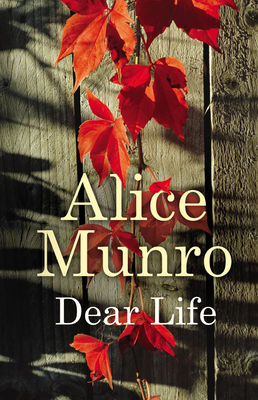Dear Life. By Alice Munro.
Subtle with a light touch and minimum of words and fully fleshed, Alice Munro’s characters appear as bit parts but leave as well drawn as people in a thousand word novel. Her short stories in at times a semi-autobiographical collection in Dear Life blow in the sharp icy winds of Canada, and fight against the suffocating social conformities of a post war priggish society. Buttoned up, churchy, and full of lopsided morals, the world the characters inhabit often sets the confines for the dramas.
To Reach Japan is a universal story of the perils and the hurts of infidelity. A woman has an affair – but has her daughter in tow who despite her young age knows what’s happening and reacts as only a child can by going missing when her mum is having a quickie – on a train. The theme of wronged or not always loved or even slightly neglected innocents reoccurs in Amundsen where precocious Mary is ignored and insulted by the charmless doctor who dumps the narrator on her wedding day.
Wronged innocents is certainly the feature of Gravel where a child feels lifelong guilt over the accidental death of a sibling while in Haven a childhood grudge dictates long held feelings into adult hood spoiling the haven of a marriage. Like slow burning fuses Munro allows the potential dynamic of childhood incidents to await an explosion late in life – sometimes more of a pop than a bang – but emotionally restorative just the same. If the innocents are not wronged then they can be keen observers of the foibles, hypocrisies and shortcomings of the grown-ups as in Haven, a story of a sibling grudge carried through to middle-age but born out of a perceived childhood injustice.
We all carry the rights and wrongs meted out to us in our formative years, and will regale without prompting how our mother did or didn’t do this or that, or a brother who borrowed without asking, or a teacher punishing without justice. Munro’s economy of words and ability to surprise with plot twists or just the brutal reality of events seen by a child, keep these snapshots of life in stayed, stuffy and often freezing post war Canada as sharp as the day they happened.
In the last four stories Munro reveals even more of her life with semi-autobiographical accounts of telling moments from her past. The visit to see her child-minder Sadie in her coffin is preceded by this telling exchange:
“You and Sadie talk together a lot,” my mother said.
I knew something was coming that I should watch for but didn’t know what.
“You like her, don’t you?”
I said yes.
“Well of course you do. I do too.”
I hoped that was going to be all and for a moment I thought it was.
Munro’s keen observations of how adults behave and talk to children, failing to recognise their in-built awareness of what is happened alongside their lack of understanding of the wider impact are what compels and what makes these stories universal.
Dear Life, by Alice Munro is published in paperback by Vintage. First published in 2012.



You must be logged in to post a comment.